HPX V1.9.1 released -- STE||AR Group
 The STE||AR Group has released V1.9.1 of HPX -- A C++ Standard library for Concurrency and Parallelism.
The STE||AR Group has released V1.9.1 of HPX -- A C++ Standard library for Concurrency and Parallelism.
HPX V1.9.1 Released
We have released HPX 1.9.1 that adds a number of small new features and fixes a handful of problems discovered since the last 1.9.0 release. In particular: we fixed various occasional hanging during startup and shutdown in distributed scenarios. We also added support for zero-copy serialization on the receiving side to the TCP, MPI, and LCI parcelports. Moreover, we have added support for Visual Studio 2019 and GCC using MINGW on Windows, and also support for GCC 13 and Clang 15.0.0. Furthermore, we aligned our header names to their standards counterparts so porting from standard C++ to HPX is now easier. Last but not least, and by adhering to popular demand, we started adding migration guides for people interested in moving their codes away from other, commonplace parallelization frameworks like OpenMP and MPI. We have also continued to improve our documentation, please have a look here.
If you have any questions, comments, or exploits to report you can reach us on IRC or Matrix (#ste||ar on libera.chat) or email us at hpx-users. We depend on your input!
You can download the release from our releases page or check out the v1.9.1 tag using git. A full list of changes can be found in the release notes.
HPX is a general-purpose parallel C++ runtime system for applications of any scale. It implements all of the related facilities as defined by the C++20 Standard. As of this writing, HPX provides the only widely available open-source implementation of the new C++17, C++20, and C++23 parallel algorithms, including a full set of parallel range-based algorithms. Additionally, HPX implements functionalities proposed as part of the ongoing C++ standardization process, such as large parts of the features related parallelism and concurrency as specified by the upcoming C++23 Standard, the C++ Concurrency TS, Parallelism TS V2, data-parallel algorithms, executors, and many more. It also extends the existing C++ Standard APIs to the distributed case (e.g., compute clusters) and for heterogeneous systems (e.g., GPUs).
HPX seamlessly enables a new Asynchronous C++ Standard Programming Model that tends to improve the parallel efficiency of our applications and helps reducing complexities usually associated with parallelism and concurrency.

 In the 2023 Annual C++ Developer Survey conducted by the C++ Foundation, the community identified a number of major pain points when working with C++.
In the 2023 Annual C++ Developer Survey conducted by the C++ Foundation, the community identified a number of major pain points when working with C++. Question from reddit poster: I am preparing to release a new feature, a fat pointer class (virtual_ptr), that makes method dispatch even more efficient. Dispatching a method with one virtual argument via a virtual_ptr takes only three instructions and two independent memory reads. As an interesting side-effect, it is now possible to use YOMM2 with non polymorphic classes hierarchies.
Question from reddit poster: I am preparing to release a new feature, a fat pointer class (virtual_ptr), that makes method dispatch even more efficient. Dispatching a method with one virtual argument via a virtual_ptr takes only three instructions and two independent memory reads. As an interesting side-effect, it is now possible to use YOMM2 with non polymorphic classes hierarchies.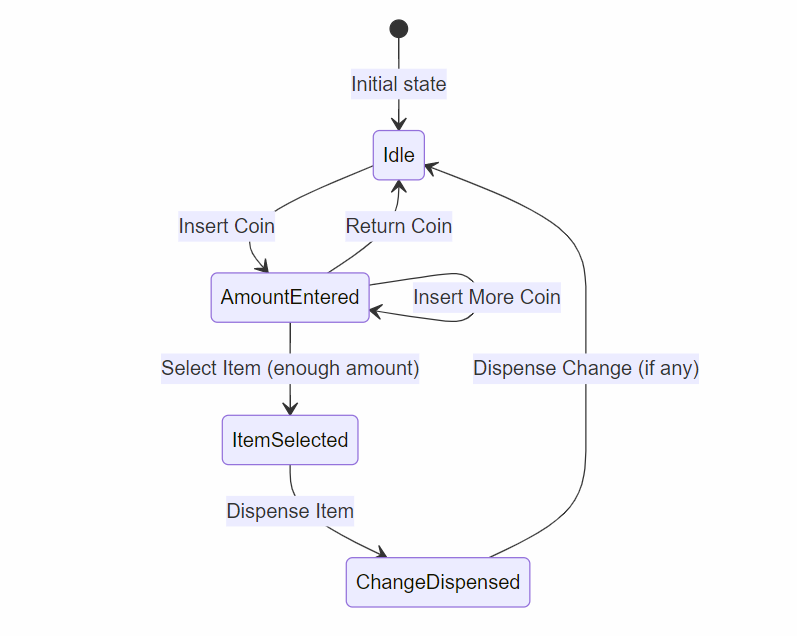
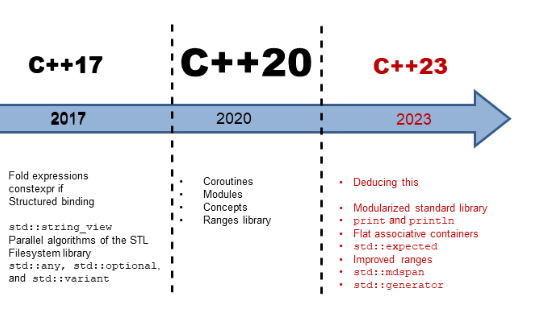 C++23 will be the next C++ standard after C++20. This new standard significantly improves C++ but is less game-changing than C++98, C++11, or C++20. C++23 is more in the tradition of C++17.
C++23 will be the next C++ standard after C++20. This new standard significantly improves C++ but is less game-changing than C++98, C++11, or C++20. C++23 is more in the tradition of C++17.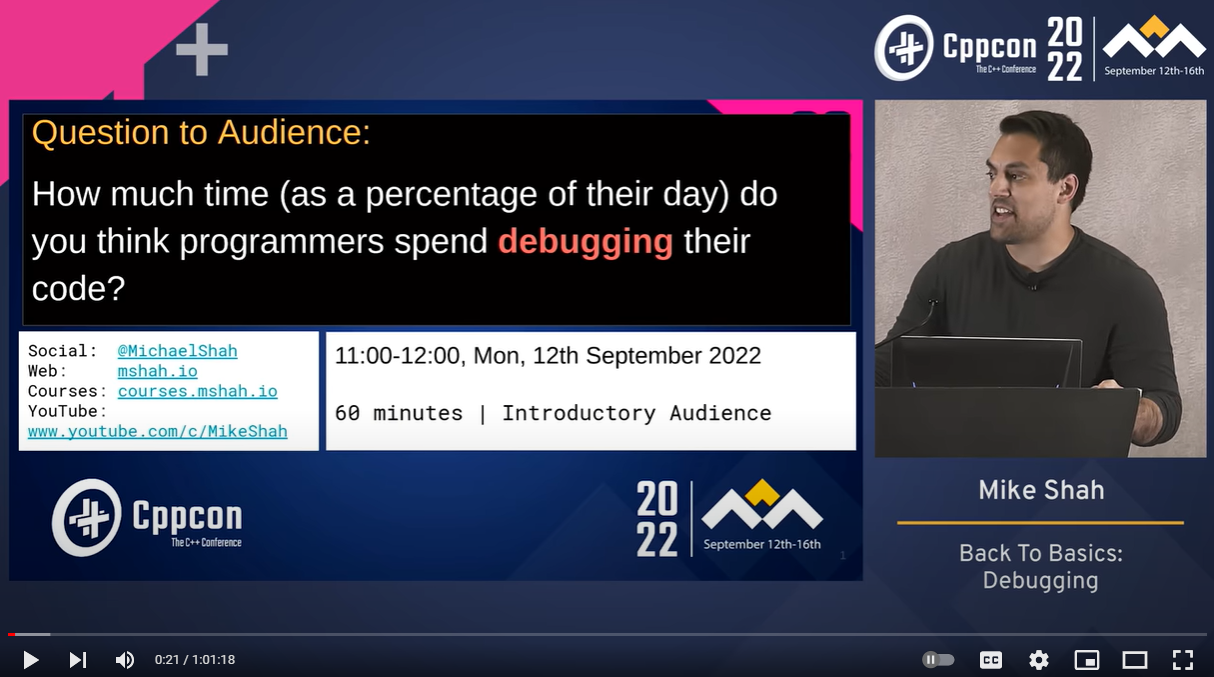 Registration is now open for CppCon 2023! The conference starts on October 1 and will be held
Registration is now open for CppCon 2023! The conference starts on October 1 and will be held 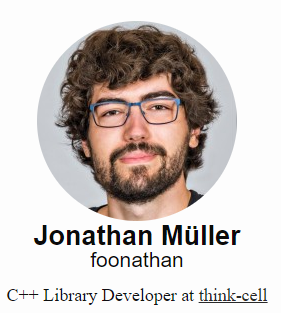 Sometimes you want to add an implicit conversion to a type. This can be done by adding an implicit conversion operator. For example,
Sometimes you want to add an implicit conversion to a type. This can be done by adding an implicit conversion operator. For example, 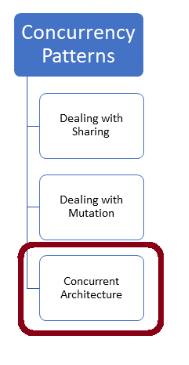 In my last post "Monitor Object" I implemented a thread-safe queue. I made two serious errors. Sorry. Today, I will fix these issues.
In my last post "Monitor Object" I implemented a thread-safe queue. I made two serious errors. Sorry. Today, I will fix these issues.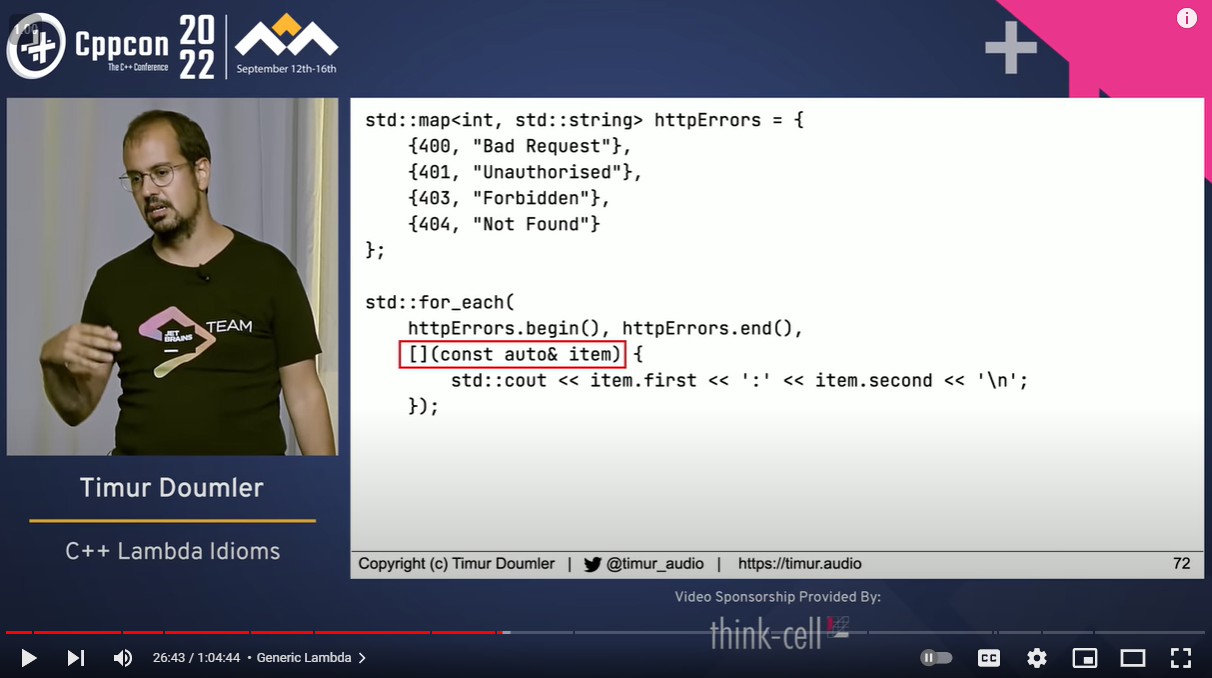 Registration is now open for CppCon 2023! The conference starts on October 1 and will be held
Registration is now open for CppCon 2023! The conference starts on October 1 and will be held